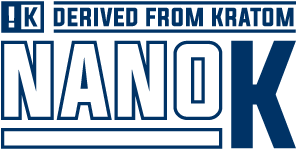Kratom has gained widespread popularity for its ability to enhance mood, promote relaxation, and support energy levels. But how does this botanical interact with the brain? The key lies in its interaction with neurotransmitters—chemical messengers that regulate emotions, focus, and overall well-being.
By understanding kratom’s effects on dopamine, serotonin, and opioid receptors, we can better grasp how it influences mood and energy.
Neurotransmitters: The Brain’s Chemical Messengers
Neurotransmitters are the brain’s way of sending signals between neurons, influencing everything from happiness and motivation to stress and relaxation. Kratom’s active compounds—mitragynine and 7-hydroxymitragynine—play a role in modulating these signals, which is why kratom has such diverse effects.
The primary neurotransmitters involved in kratom’s effects are:
-
Dopamine – The “motivation and reward” neurotransmitter
-
Serotonin – The “mood and relaxation” neurotransmitter
-
Opioid Receptors – The “pain and well-being” receptors
By interacting with these pathways, kratom can increase energy at lower doses and promote relaxation at higher doses, making it a uniquely versatile botanical.
Kratom and Dopamine
Dopamine is a key neurotransmitter for motivation, attention, and pleasure. When dopamine levels are balanced, we feel focused, engaged, and driven. When they’re low, we may feel sluggish or unmotivated.
Nano K’s Peanut Butter Nuggets or Dark Chocolate provide a convenient way to enjoy kratom for focus and motivation, making them a great choice for starting the day or overcoming mid-afternoon fatigue.
Kratom and Serotonin
Serotonin is the neurotransmitter that helps regulate happiness, mood stability, and emotional well-being. While kratom doesn’t directly increase serotonin levels the way some medications do, it does influence serotonin receptors, which may contribute to feelings of contentment and relaxation.
This makes kratom chocolate and other infused treats a perfect addition to a self-care routine, whether enjoyed after work or before winding down for the evening.
Kratom and Opioid Receptors
One of kratom’s most well-known properties is its interaction with opioid receptors, though it differs significantly from traditional opioids. Unlike synthetic opioids, kratom’s alkaloids are only partial agonists, meaning they bind to opioid receptors without causing intense sedation or respiratory depression.
By working with opioid receptors in a mild and controlled way, kratom can offer a natural alternative for relaxation and mood enhancement.
Finding the Right Kratom Product for Your Needs
Because kratom’s effects depend on dosage and formulation, choosing the right product can make all the difference.
-
Try Nano K Kratom’s Dark Chocolate or Peanut Butter Nuggets in the morning or early afternoon.
-
Almond Toffee or Butter Cream Caramels are great for evening wind-down routines.
-
Raspberry Fruit Gummies offer a light, refreshing way to experience kratom throughout the day.
How Kratom Can Play Into Mood and Energy
Kratom’s interaction with dopamine, serotonin, and opioid receptors helps explain its energizing, mood-enhancing, and calming effects. Whether used to start the day with focus and motivation or relax and unwind, kratom offers a versatile and natural way to support well-being.
Nano K Kratom’s high-quality edibles provide a delicious, convenient, and precisely dosed option for experiencing kratom’s benefits. Explore our treats today and find the best kratom-infused treat for your lifestyle.
